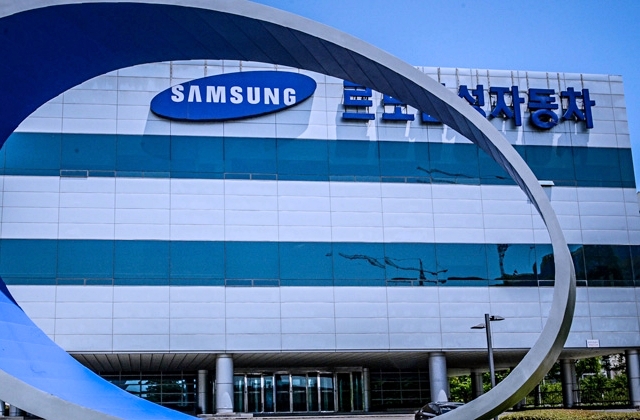Samsung recently confirmed that it will be making its exit in the auto business. The company was said to have made the decision to end its 26-year venture with Renault.
The announcement about its departure from this line of business came just a few days after Samsung’s vice chairman and heir, Lee Jae Yong, was granted parole and regained his freedom after months of imprisonment.
According to The Korea Times, it was revealed on Thursday, Aug. 19, through a regulatory filing to the Korea Exchange, that Samsung Card, Samsung Group's card issuance subsidiary, is poised to sell all the stake it owns in Renault Samsung Motors.
"Samsung Card is in the process of selling the company-owned 19.9% stake in Renault Samsung Motor,” part of the statement in the filing reads. “But other specifics such as the type of stake sale and form of due process have yet to be decided."
Then again, it was reported that Samsung Card’s plan to sell its stake may not be easy because Renault Samsung is not financially sound as of this moment. It was added that its corporate sustainability is not in good shape as well, so the sale may encounter many hurdles.
In fact, the auto company was said to have lost around ₩79.6 billion in operating costs last year. It turned out that this was the firm’s first loss in the last eight years.
There are people who are saying that Samsung Card is withdrawing from its venture with Renault due to today’s rapid transition to electric vehicles, but this could not be confirmed. At any rate, a source said that Samsung Card will not be selling its stake at a high price.
The company already sent out invitations for bids to private equity funds (PEFs) and other local and foreign financial investors.
Meanwhile, The Korea Economic Daily reported that Samsung Card’s stake sale was already expected due to Renault Samsung’s poor performance that leads to low earnings. On top of this, it was pointed out that the auto firm has a strained relationship with its own labor union. These internal company issues were said to have been negatively affecting its sales in South Korea and overseas, and the decline is continuing.



 Vietnam’s Trade Surplus With US Jumps as Exports Surge and China Imports Hit Record
Vietnam’s Trade Surplus With US Jumps as Exports Surge and China Imports Hit Record  Dow Hits 50,000 as U.S. Stocks Stage Strong Rebound Amid AI Volatility
Dow Hits 50,000 as U.S. Stocks Stage Strong Rebound Amid AI Volatility  SpaceX Pivots Toward Moon City as Musk Reframes Long-Term Space Vision
SpaceX Pivots Toward Moon City as Musk Reframes Long-Term Space Vision  Amazon Stock Rebounds After Earnings as $200B Capex Plan Sparks AI Spending Debate
Amazon Stock Rebounds After Earnings as $200B Capex Plan Sparks AI Spending Debate  Anta Sports Expands Global Footprint With Strategic Puma Stake
Anta Sports Expands Global Footprint With Strategic Puma Stake  Bank of Japan Signals Readiness for Near-Term Rate Hike as Inflation Nears Target
Bank of Japan Signals Readiness for Near-Term Rate Hike as Inflation Nears Target  SpaceX Prioritizes Moon Mission Before Mars as Starship Development Accelerates
SpaceX Prioritizes Moon Mission Before Mars as Starship Development Accelerates  Russian Stocks End Mixed as MOEX Index Closes Flat Amid Commodity Strength
Russian Stocks End Mixed as MOEX Index Closes Flat Amid Commodity Strength  Kroger Set to Name Former Walmart Executive Greg Foran as Next CEO
Kroger Set to Name Former Walmart Executive Greg Foran as Next CEO  SoftBank Shares Slide After Arm Earnings Miss Fuels Tech Stock Sell-Off
SoftBank Shares Slide After Arm Earnings Miss Fuels Tech Stock Sell-Off  SpaceX Pushes for Early Stock Index Inclusion Ahead of Potential Record-Breaking IPO
SpaceX Pushes for Early Stock Index Inclusion Ahead of Potential Record-Breaking IPO  Oil Prices Slip as U.S.-Iran Talks Ease Middle East Tensions
Oil Prices Slip as U.S.-Iran Talks Ease Middle East Tensions  Indian Refiners Scale Back Russian Oil Imports as U.S.-India Trade Deal Advances
Indian Refiners Scale Back Russian Oil Imports as U.S.-India Trade Deal Advances  FDA Targets Hims & Hers Over $49 Weight-Loss Pill, Raising Legal and Safety Concerns
FDA Targets Hims & Hers Over $49 Weight-Loss Pill, Raising Legal and Safety Concerns  Japanese Pharmaceutical Stocks Slide as TrumpRx.gov Launch Sparks Market Concerns
Japanese Pharmaceutical Stocks Slide as TrumpRx.gov Launch Sparks Market Concerns  Trump Lifts 25% Tariff on Indian Goods in Strategic U.S.–India Trade and Energy Deal
Trump Lifts 25% Tariff on Indian Goods in Strategic U.S.–India Trade and Energy Deal  Trump Backs Nexstar–Tegna Merger Amid Shifting U.S. Media Landscape
Trump Backs Nexstar–Tegna Merger Amid Shifting U.S. Media Landscape 































